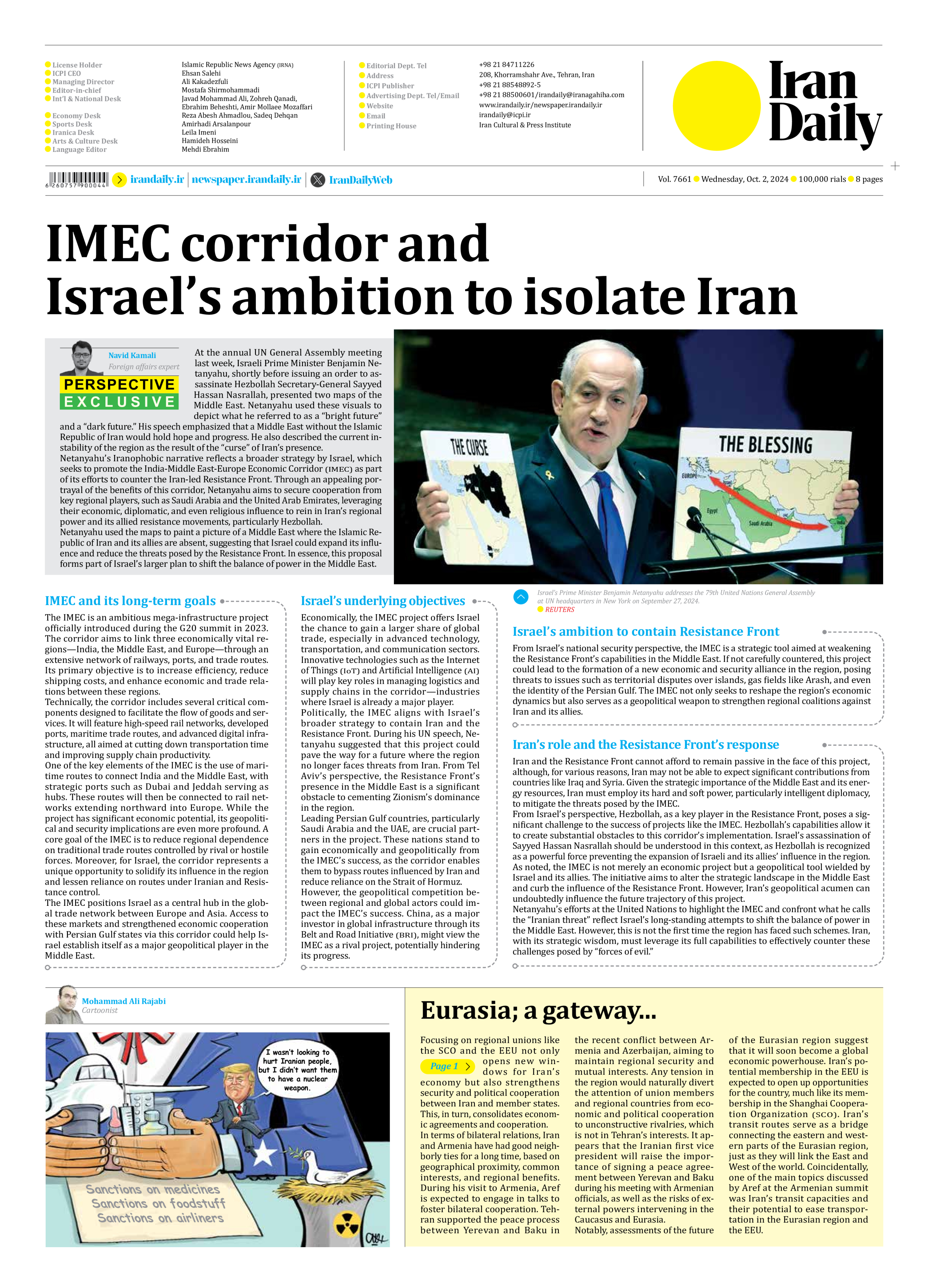
Eurasia; a gateway...
Page 1
Focusing on regional unions like the SCO and the EEU not only opens new windows for Iran’s economy but also strengthens security and political cooperation between Iran and member states. This, in turn, consolidates economic agreements and cooperation.
In terms of bilateral relations, Iran and Armenia have had good neighborly ties for a long time, based on geographical proximity, common interests, and regional benefits. During his visit to Armenia, Aref is expected to engage in talks to foster bilateral cooperation. Tehran supported the peace process between Yerevan and Baku in the recent conflict between Armenia and Azerbaijan, aiming to maintain regional security and mutual interests. Any tension in the region would naturally divert the attention of union members and regional countries from economic and political cooperation to unconstructive rivalries, which is not in Tehran’s interests. It appears that the Iranian first vice president will raise the importance of signing a peace agreement between Yerevan and Baku during his meeting with Armenian officials, as well as the risks of external powers intervening in the Caucasus and Eurasia.
Notably, assessments of the future of the Eurasian region suggest that it will soon become a global economic powerhouse. Iran’s potential membership in the EEU is expected to open up opportunities for the country, much like its membership in the Shanghai Cooperation Organization (SCO). Iran’s transit routes serve as a bridge connecting the eastern and western parts of the Eurasian region, just as they will link the East and West of the world. Coincidentally, one of the main topics discussed by Aref at the Armenian summit was Iran’s transit capacities and their potential to ease transportation in the Eurasian region and the EEU.







